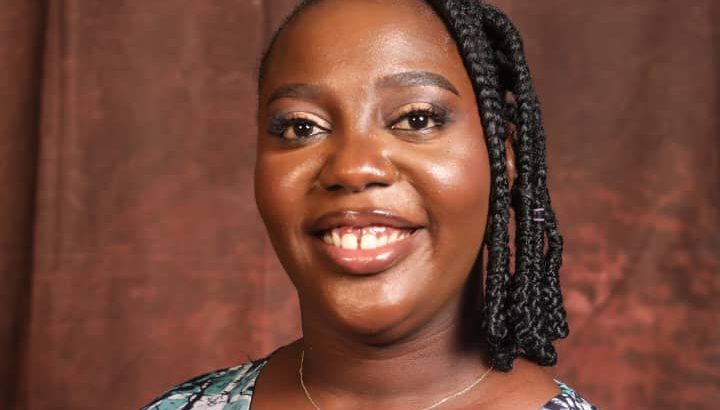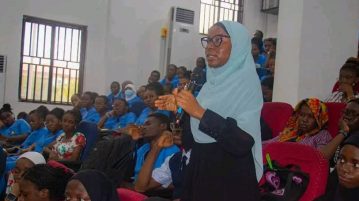Post-graduate and residency training are important parts of the medical and dental career pathway…
Still on the trail of speaking with resident doctors in Nigeria, towards providing insights into the current state of residency for other colleagues and dispelling misconceptions surrounding this pathway, we interviewed Dr Ibiyemi Somefun, an Anaesthetic trainee (resident) at the School of Anaesthetic Studies, Lagos State Health Service Commission.
Interviewer: Medical Mirror (MM) Correspondent, Mary O. A. Awoniyi
MM: What motivated you to pursue a post-graduate training program in Nigeria, and how did you come to choose the specialty and faculty you are training in?
After my undergraduate studies, I started working at the general hospital as a medical officer in Anaesthesia. This exposure further ignited greater interest in me, although I did my medical students’ electives in Anaesthesia. So while I was working, I realised and thought to myself “why not start training to gain more knowledge and be the best at what I do?” So, I decided to go down this path, as I love to read and know better to help my patient. Also, I had senior colleagues who had “stuff” and was in a work environment that encouraged people to learn. It wasn’t a toxic relationship where people would be abused and insulted for not knowing, but rather, I had consultants and other senior colleagues who were approachable and always willingly to impact knowledge. This made me hopefully and think towards the direction of post-graduate training.
MM: Interesting, so what is the comparison between this post-graduate training and residency training?
For me, undertaking this postgraduate training feels very much like stepping into residency, especially within the pathway I was on. It is a structured journey, one that allows you to grow steadily while offering the flexibility to advance at your own pace. The first milestone comes after twelve months, when you earn a Postgraduate Diploma. At that point, you can choose to exit with the recognised qualification or continue on the pathway.
If you decide to move forward, the next stage immerses you more deeply into the training as a clinician. After two years of this sustained training, you earn a Membership with the National College, or after three years, a Membership with the West African College – essentially transitioning you into the level of a senior resident. Again, the system respects your autonomy: you may exit at this stage with a respected specialty certification, or choose to keep advancing.
For those who continue, the training leads into the Fellowship stage. Two additional years open the door to Fellowship with the National College, while three years lead to Fellowship with the West African College. These fellowships represent the highest level of specialist training in the region.
What I appreciate most about this pathway is that it is not rigid; it allows you to grow, pause, or progress based on your goals and readiness. At every stage, you earn a recognised qualification—each one a meaningful step toward becoming a fully trained anaesthesiologist.
MM: Since commencing your training, can you share highlights of your experience so far?
One of my many experiences worthy of note, would be a day we had mass casualties, and were called in to come save the day. That particular day, I realised the specialty was all-encompassing to make lifesaving difference.
MM: Also, what’s been the most rewarding part of your experience so far?
Anaesthesia is a subspecialty often under-looked and misunderstood. As anaesthetists, we stand as anaesthesia care providers, airway managers, critical care physicians, pain specialists, and emergency physicians. Anaesthesia allows me to be many things and gives me the opportunity to make a difference each day. It is intriguing as we have a wide range of patients from inutero patients to geriatric patients with numerous conditions and we get to make a difference across the full spectrum of patients we serve. The joy of making this difference and seeing so many patients get better makes me happy. Likewise, the fact that my knowledge can be put to use, and I see immediate result is a delight for me.
With anaesthesia you get to be a fast thinker, a leader and a team member at the same time, as well as engage every aspect of your body while at work – it’s interesting. The specialty makes one an effective multitasker to achieve results.
MM: What are some of the common challenges encountered during post-graduate training, including residency in Nigeria today, and are there any solutions in sight?
Residency training all over the world is tasking and challenging, and Nigeria is no exception. Particularly coupled with the challenge of working in a developing nation like ours, with poor resources at the disposal of the medical practitioners. However, things are getting better, especially in Lagos State – there is increasing funding to the health sector, and it is evident by the improved quality of care and better outcomes. Procedures which were previously performed outside the country are now be done here giving us more exposure in terms of training. Also, the choice of where to have postgraduate training is equally very important.
A learning environment that gives room for learning, unlearning, relearning with minimal toxicity should be priority for training.
Furthermore, due to the ever-increasing deficiency of medical practitioners, we have people working more than they should usually do, especially in training. This is stressful, as the highest standard of care is still expected to be delivered to the patients. I remember an instance when I was on duty call; I was really tired and even with severe pains but still had to function and continue with planned surgeries. This shouldn’t be so ideally. Then, there’s also the lack of resources and funding for training, which is a persistent challenge. However, something that has made things easier while working is the team, i.e. having colleagues and working with people that are cooperative.
MM: In terms of these challenges, how do you think trainees can manage, balance the demands of training with personal life, and prioritise self-care practices?
To be honest, maintaining work-life balance in training is demanding because residency can be quite challenging. But with the end in mind, one has a reason to keep moving. A resident is a doctor with many parts, and these parts can be likened to balls one has to juggle. There are some balls that need to be tossed up in the air and some that would remain down in the hands. Having the Spirit of God and wisdom help you determine which to hold and which to drop while juggling.
Another thing is to speak to people who have gone ahead of you. The wisdom of experience cannot be bought; they can only be impacted and passed on. So, listening to them helps in making decisions. It’s also quite important to sit down and internalise what one needs to do and how to go about it.
Having a support system is key – as you cannot do it all by yourself. One needs support to help with tasks that needs to be performed, especially when you aren’t home to get them done. I am very family-oriented, and they (my family and these home tasks) are important to me, so that takes priority on the list. For self-care practices, my hair-do matters to me and my sleep. I may or may not sleep for long but when I sleep, I do not like to be disturbed.
MM: How do you see the future of specialty training in Nigeria evolving, and in what way can young doctors be well positioned for it?
The country is tending towards a direction where one needs to be a specialist to remain in a field of practice, even Family Physicians are specialising, so why not. Even if you choose a non-clinical pathway, be the best at your chosen field and an expert where you decide to be. There is a decreasing toxicity in training and the japa trend has given a platform for elders to sit and discuss the way forward. Many opportunities lie around you just need to keep your eyes opened and pick up on it.
Don’t be a chronic medical officer, desire knowledge and go for it.
MM: What advice would you give to junior residents who are just starting their programs?
Starting training can be rough and tough – it takes some getting used to. At the beginning, it may not seem easy but over time one gets a hang of it. So, don’t give up and don’t question yourself daily, asking why you chose this path.
Every path of life does have its challenges, and they often seem impossible to overcome but overtime, one soars over it like an eagle.
MM: What message would you like to convey to potential applicants who may be hesitant or unsure about pursuing a residency program?
Delay is denying yourself an opportunity to evolve and blossom. A caterpillar becomes a butterfly. Life is in stages and phases, start now.
MM: On a scale of 1-10, what would you rate your own residency experience?
Currently between a 7 and 8.
MM: If you could go back in time, would you still make the same decision. Same specialty? Same training centre?
Yes, I would. Anaesthesia definitely and my current training centre – Lagos State Health Service Commission School of Anaesthetic Studies. Thank you




